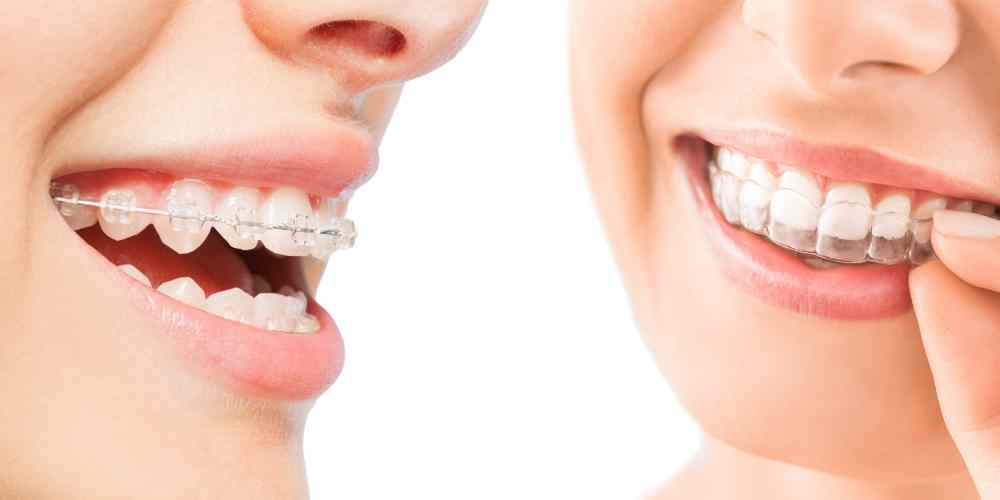Laurel Dental & Copperwood Dental
Temporomandibular Joint (TMJ) Disorders in Edmonton
TMJ Treatment Edmonton
Meet Dr. Chersa and Team
Dr. Chersa understands the struggle of living with TMJ pain, having experienced it himself for years. His personal journey as a patient, combined with his expertise as a dentist, allows him to empathize deeply with his patients. He and his team are dedicated to providing compassionate care tailored to each individual's needs.
Free Consultation
We invite you to schedule a free consultation with Dr. Chersa to discuss your symptoms and explore your treatment options.
No Wait Times
At our clinic, we prioritize your time. Enjoy no wait times for TMJ appointments, ensuring you receive the care you need without delay.
Customized Treatment Options
Every patient's needs are different, and TMJ treatment is tailored based on factors such as age, medical history, teeth alignment (occlusion), muscle activity, and existing dental work
Understanding TMD/TMJ
What is TMD?
The temporomandibular joint (TMJ) connects your jawbone to your skull, allowing you to chew, swallow, speak, and yawn. When issues arise with the muscles, bones, or tissues surrounding the TMJ, you may experience a temporomandibular disorder (TMD).
TMJ Disorder Symptoms
TMJ disorders can be mistaken for migraines or sinus pain, so seeing a dentist is important for an accurate diagnosis. Common symptoms include:
- Clicking: Popping or clicking sounds when moving your jaw.
- Dysfunction: Trouble chewing or speaking due to jaw misalignment.
- Locking: Jaw locking or limited movement.
- Headaches: Often confused with other conditions.
- Tinnitus: Ringing in the ears.
- Stiffness: Tightness in the jaw, neck, or facial muscles.
- Vertigo: Dizziness or spinning sensations.
- Misalignment: Jaw misalignment affecting bite.
- Dental Problems: Tooth erosion and related issues.
If you have these symptoms, contact our Edmonton office for help.
TMJ Treatment Costs
TMJ treatment costs vary based on care type and severity. Common treatments include appliance therapy ($800 - $2,000), restorative dental work (varies by the Alberta Dental Fee Guide), orthodontic treatment (e.g., Invisalign, $4,995), and neuromodulator injections (e.g., Botox, $350 per session). In severe cases, surgical options may be necessary, with costs depending on complexity. To manage costs, check insurance coverage, explore payment plans, and consider early treatment to prevent higher expenses. For more details, learn more about the costs of TMJ treatment.
TMJ Pain & Sleep Services We Provide

Sleep Apnea & Snoring
Breathing issues, like sleep apnea (OSA) and snoring, that can affect your rest.
Sleep
Craniofacial Pain
TMJ facial pain, such as headaches or migraines, is a commonly identified issue.
Pain
Pediatric TMJ Relief
TMJ therapy for sleep-related breathing disorders and issues found in children.
PediatricsMJ Treatment Options in Edmonton
Dental Splints
Dental splints are custom-made devices that help keep your bite stable, easing the strain linked to TMJ (temporomandibular joint) disorders. They hold your jaw in a relaxed position, reducing pressure on the jaw joint and nearby muscles. This can relieve symptoms like jaw pain, headaches, and facial discomfort. You may wear splints at night, during the day, or both, based on your needs and your dentist's advice.
Orthodontics for TMJ Pain
Orthodontic treatments like braces or clear aligners can help reduce TMJ pain by fixing alignment problems with your teeth and jaw. When your bite is balanced, it puts less stress on your jaw joint, which can ease pain and discomfort. Orthodontic care is tailored to each person to ensure it’s effective and supports long-term oral health.

Orthotics
Orthotics are custom devices designed to adjust your jaw’s position for better comfort and function. Unlike splints, which stabilize the bite, orthotics shift your jaw to fix imbalances or issues causing TMJ pain. They can ease muscle tension and improve jaw movement. Orthotics are often part of a broader treatment plan that includes other therapies to help manage TMD (temporomandibular disorder) effectively.
Diagnosing Your TMD
If you have TMJ symptoms, visit our Edmonton practice for effective relief. Dr. Taha Chersa will perform a thorough exam to provide a precise diagnosis and personalized treatment.
- Health History: Dr. Taha Chersa will review your medical history to identify areas of pain and discomfort.
- Physical Exam: He will check for tenderness, listen for jaw clicking or popping, and assess your jaw's range of motion for any locking or functionality issues.
- Bite Modeling: If needed, a dental impression will be taken to check for bite misalignment.
- Dental Imaging: X-rays may be used to examine the TMJ and rule out other dental problems, such as wisdom teeth issues.
Request a TMD consultation today!
Exploring Alternatives for TMJ Treatment
While our primary focus is on the treatments outlined above, some patients may explore alternative therapies such as physical therapy, acupuncture, or stress management techniques.


